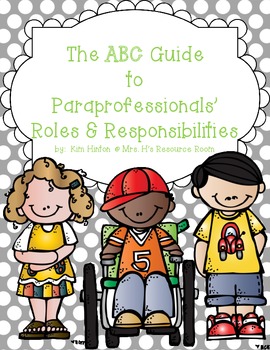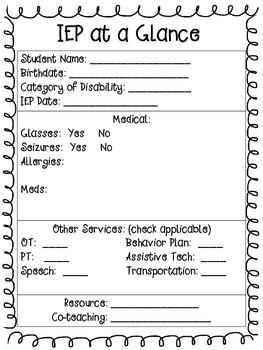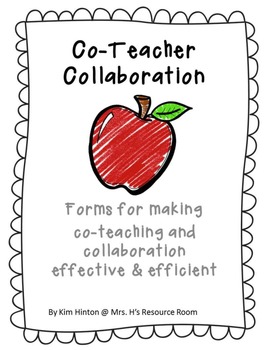Welcome to Week 4 of the Sped Summer Blog Hop!
If you have missed any of the past Sped Blog Hop posts, click below for the link you need!
This week, as you can see above is about working with paraprofessionals (classroom assistants, instructional assistants, etc). You know what they don't teach in college coursework? How to work with paraprofessionals! That's okay...now...I've had several years of experience working with paraprofessionals and I feel pretty good about it now. However, when I was straight out of college and many of the people I worked with were older than me and had been in special education longer than I had been, well, it was intimidating to say the least. I have some tips for all of you to make working with paraprofessionals a little more comfortable.

1. Respect! Respect their opinions, their ideas, their perspective. Some of my paras have been in special education or working with students for years and some have been brand new. Everyone brings something special to the table, everyone has their own life experiences and it is so important to get to know the people that will be working with you day in day out. Ask your paras what they expect, what they think the job they are doing is about, for suggestions, and listen to what they say. You never know when someone is going to know or say something that is going to be useful for your students.
2. Leave the adult "stuff" at home. As mentioned in number 1, everyone is bringing something different to the table. We all have our own "junk," but keep in mind that you and your paras are here for the kids, first and foremost. If there is something going on, be sympathetic, be a good listener, but be professional and keep the student first and deal with the other stuff at a different time.
3. Communicate! If there are things going on at home or school, keep those lines of communication open. My para and I shared a room and were able to talk daily, but there have been schools I've been in that I don't see my paras all day, everyday and at the end of the day everyone is ready to go home. Schedule a time to meet with your staff. This allows you time to address needs and gives your staff time to express needs. This is something I would actually like to implement myself this year. Sometimes, I have great intentions, but really need to be more intentional...this is my year for that! :)
3. Training. As a special educator, you have the experience and the schooling that qualifies you to teach students with special needs, but your para probably will have little to no training. It is important to train your para about various types of disabilities (depending on your student needs), how to handle specific situations, and set clear expectations about what he/she should be doing with the students or in the classroom.
4. Teach expectations! We teach expectations to our students, but sometimes we leave this important piece out when training an adult. Sometimes we assume that because the para is an adult working with children with special needs, that they should know or already have the same expectations as you. That is not always the case. I have and have had WONDERFUL paraprofessionals, but it can be confusing for that person if I have not told them what I expect of them. At the beginning of the year it would be a good idea to have a meeting or conversation with your paras to outline your expectations.
Another great way to communicate your expectations is with your schedule. I shared in Week 1 of this blog hop my para schedules. Decide who/what/where you want your para to be with based on IEP needs and then schedule that para accordingly. I like to include 4 columns on the paraprofessional's schedule:
Time
Location (classroom, resource room, lunch room, playground...)
Students needing assistance
Task to complete
I have found this to be extremely helpful and important!
 |
| Example of Paraprofessional Schedule |
5. Paras sometimes get the dirty job...seriously! From changing diapers to cleaning vomit...the life of a para can be less than glamorous. Show your appreciation to your paraprofessional. Switch places with them sometimes. Don't ask your para to do anything you wouldn't do yourself and give them a break sometime and actually do those less desirable jobs yourself!
Paraprofessionals are so important in the special education classroom! I am so happy for the amazing paras (that are in da buildin'-----Amy---that one's for you!) and I couldn't do my job without them!!
Kim
Hop along to Pam's blog!!















































